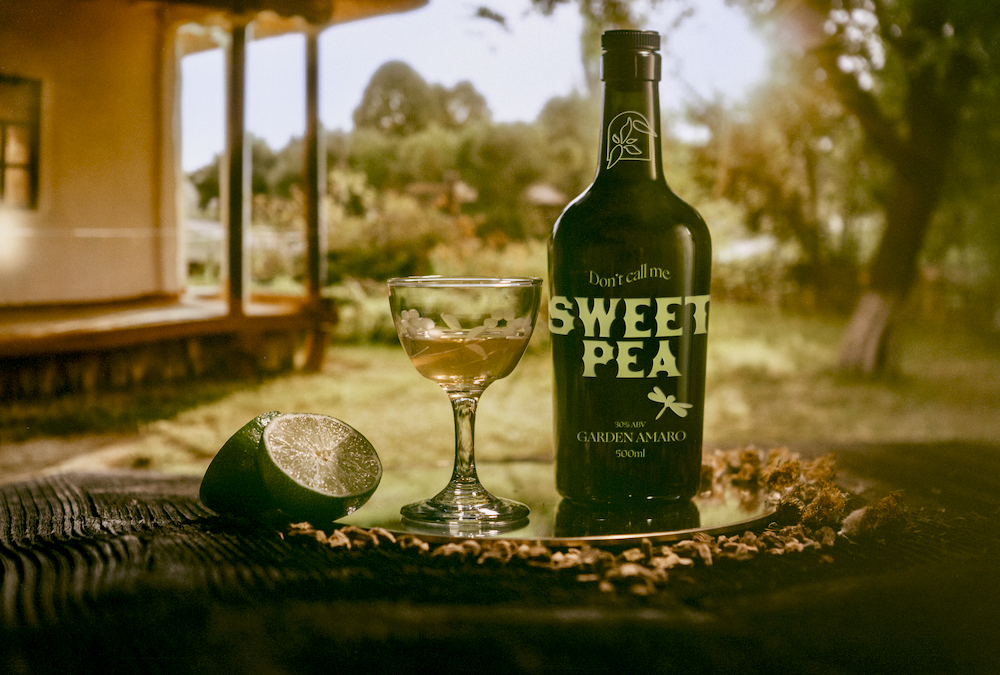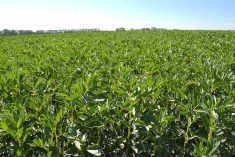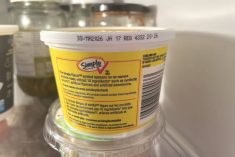If Alberta’s malt barley can be transformed into craft beer and its rye into premium whisky, why not field peas?
That’s the question that Faaiza Ramji asked herself early in the pandemic as she explored ways to use more Alberta-grown crops in locally processed foods and drinks.
“I was disappointed to learn that we grow so many amazing crops here and then sell them raw and unfinished to other countries where they add a lot of the value and then sell them around the world, including Alberta,” said the Edmonton-based co-founder of Field Notes, the first company in North America to make spirits from distilled field peas.
Read Also
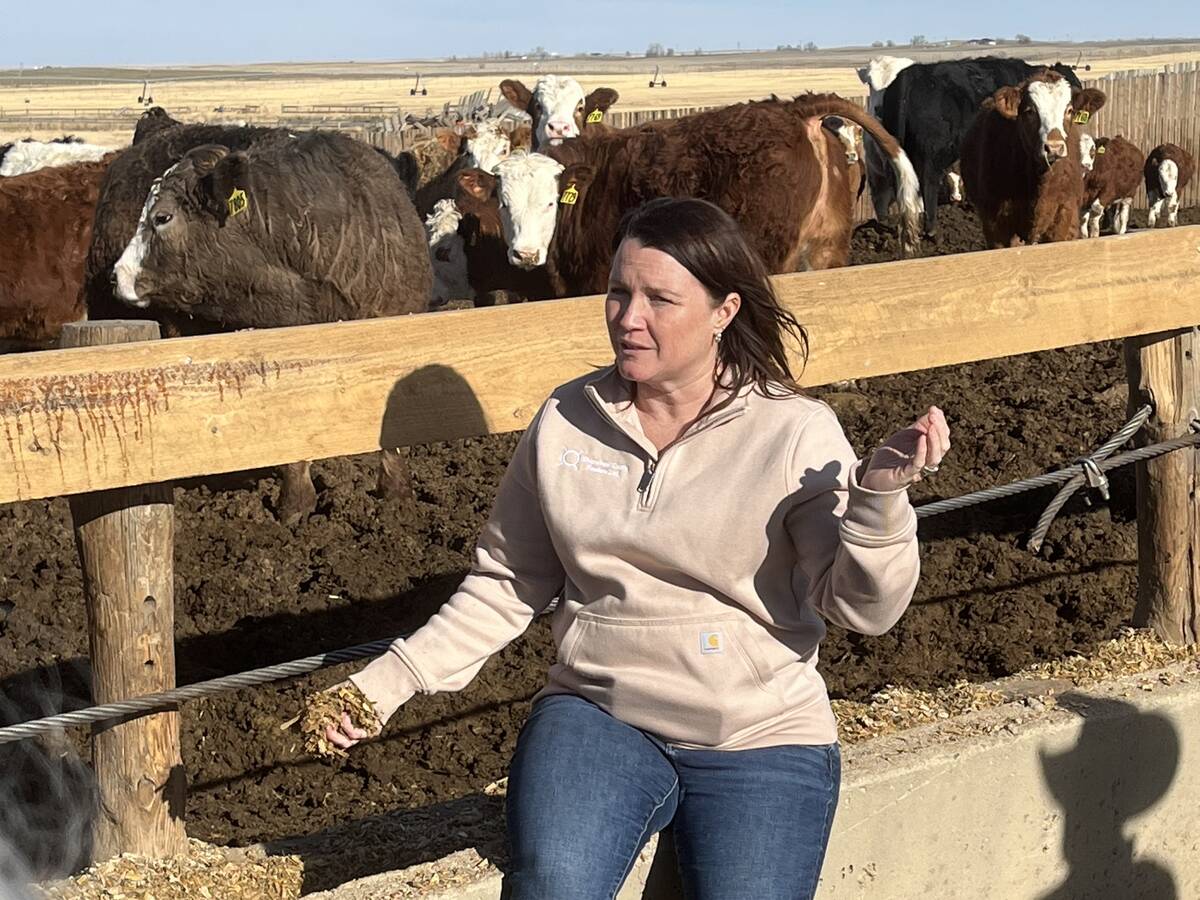
Roots of Resilience: The 50-year evolution of Shipwheel Cattle Feeders
Alberta’s Shipwheel Cattle Feeders is one of Canada’s pioneers in holistic regenerative agricultural practices.
“I just don’t see a need to go outside of Alberta for all these things. I wanted to create something out of Alberta pulses to see if I could do it differently.”
So along with co-founder Lindsey Good — who grows field peas at Stirlingville Farms near Carstairs — Ramji began doing some research on turning the legume into a snack product or dairy alternative. But right away, she ran into a “very challenging and expensive” problem — how to actually fraction the peas locally.
Then the pandemic ramped up, posing another challenge for the small-business owner.
“I thought, ‘If I can’t sample this to the end consumer, they’re not really going to be motivated to try a pea milk latte for $6.’ It’s not a product you tend to see in that category.”
But almost by chance, Ramji came across an article that held the answer to her problem: Distilling ingredients other than grains into spirits.
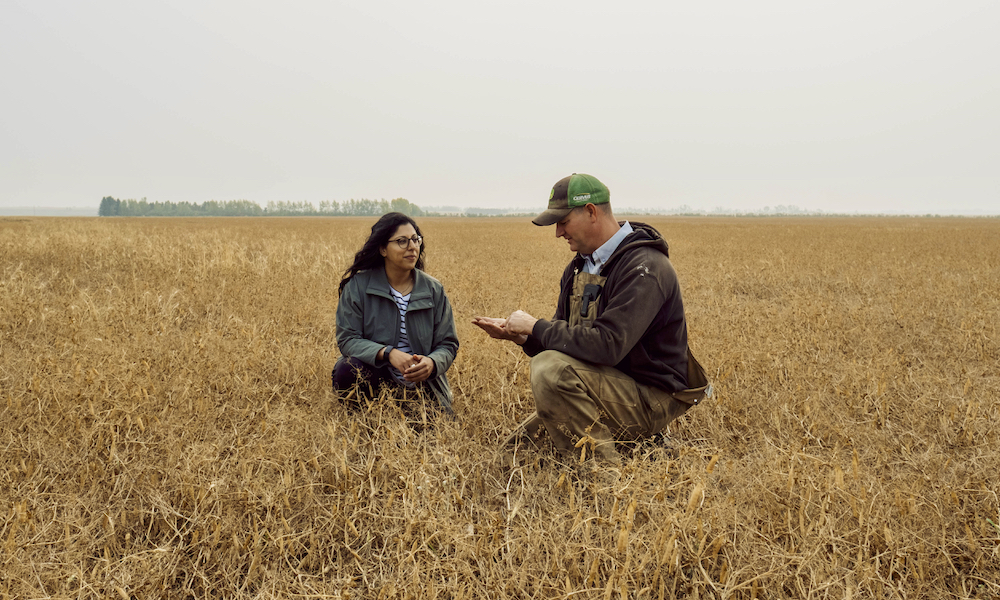
“I thought that was cool and wondered if we could do that with peas,” she said. “So I called a few distilleries in town and said, ‘I want to see if we can make an alcohol out of peas — do you know if that’s possible?’”
Nathan Flim, the owner of Fort Distillery in Fort Saskatchewan, was on board right away.
“He said, ‘I don’t know, but I’m totally willing to try. Drop off a bag of peas and let’s see what we can come up with,’” Ramji recalled.
“That was the response I needed to feel excited to do the experiment. We dropped off 100 kilos of peas to Nathan, and he distilled them once — whereas normally he would distil a vodka two to three times — and said, ‘You’ve got to come taste this.’”
In its concentrated form, the initial formulation had a strong alcohol flavour. But there was also a “sweetness and a freshness and a herbaceousness” from the peas that Ramji thought might lend itself to an amaro liqueur, a small but growing liquor category in Canada that has its roots in Italy, France, and other European countries.
And she was right.
Launched last year, the Don’t Call Me Sweet Pea garden amaro uses field peas infused with botanicals and sweetened with Alberta honey to create an after-dinner digestif that’s “really fresh, really fragrant.”
“We call it a garden amaro because it really does smell and taste like a garden,” she said. “It tastes more like the things we’ve infused in it rather than the peas — honey as a sweetener, elderflower, garden sage, chamomile, and Labrador tea. Those are the flavours that are most prominent in the product.”
Garden amaro
That’s what pulse grower Robert Semeniuk found when he first sampled the liqueur.

“It’s very herbal,” said the Alberta Pulse Growers chair, who farms near Smoky Lake. “When I heard it was a liqueur, I assumed it was going to be something quite sweet. But when I got the burn and the botanicals, it clicked in my mind that this is a digestif.
“It wasn’t that far off a Jagermeister or something along those lines. It’s got the same sort of body and a touch of a burn on the tongue.”
Not typically a liqueur drinker, Semeniuk came around on the amaro quickly when he shared it with a few other people in the pulse industry.
“We probably ended up drinking half the bottle, so we acquired a taste for it as we drank it,” he said with a laugh.
“It was very craft — a little cloudy and an odd green colour — but it definitely fit the bill of what an amaro is.”
And while the initial flavours he got from the amaro were the herbs and the honey, there was also a hint of peas in it.
“You could pick that out a little bit, but I don’t think it negatively impacted it — if anything, I think it complemented it,” he said. “It was another layer of the different botanicals that are in it.”
As a pulse grower, Semeniuk sees this as another (albeit currently small) potential market for his crops.
“Any time we can find unique markets like this is awesome,” he said. “Look at what craft beer did for barley. So much more barley started getting used up closer to home here because of that. It’s really about keeping our market as close to home as we can. We have so much potential here in Alberta for more markets and more processing for pulses.
“Kudos to Field Notes and Fort Distillery for trying it. To see that kind of stuff come onto the market is great.”
For Ramji, though, Don’t Call Me Sweet Pea is also about celebrating the bounty that grows right here in our own backyard.
“We have so many amazing things in this province that we don’t always realize we have,” she said.
“It’s about playing to our strengths, and in Alberta, we have a lot of strengths. But sometimes we take them for granted or overlook them. There’s no need to do that. It just makes sense to look locally.”

